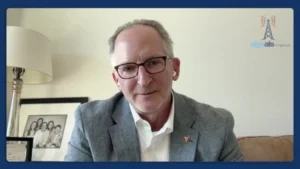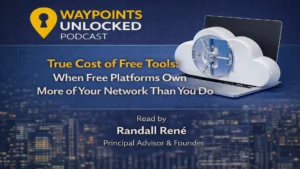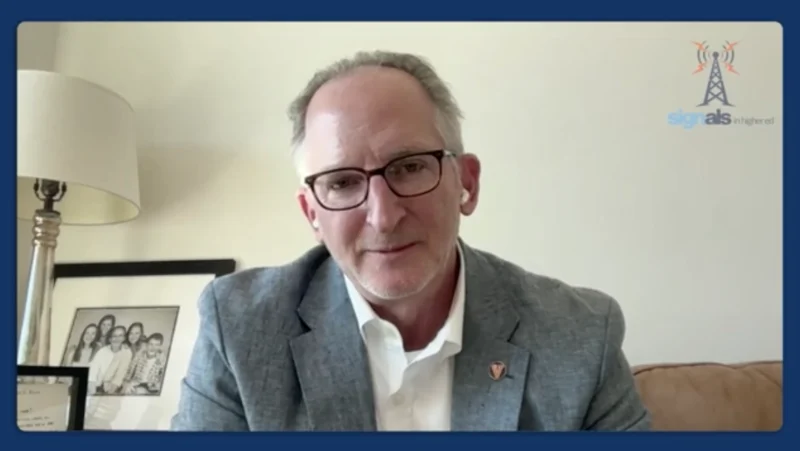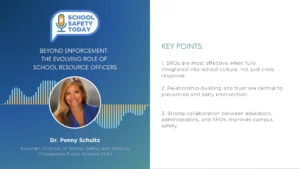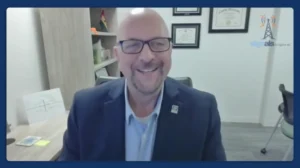How Today’s Curriculum Content Must Change
For Andy Pass, this moment in time is an opportunity to improve everything—from the way the edtech industry works, to the way educational content is created, to the way in which we teach and learn. In this wide-ranging episode, he touches on all these points and more. For example, the company recently posted an example of the changes education publishers should follow. An excerpt is below:
Publishers face an uphill battle when it comes to remaining profitable these days. Still, opportunities to maintain and improve profits exist. Per a survey by Gutenberg Technology, 37% of industry leaders believed, “the market will still be interested, and there will be no end for paper textbooks.” That’s great news! However, 63% believe the decline in paper textbooks will continue to come. Yet, the pandemic accelerated the adoption of digital content. Leaders can follow these six strategies to succeed.
Educational Publishers can Review Their Digital-First Strategy
Many leaders may find their digital-first strategy needs a tune-up. Yes, creating digital learning materials is a revenue generation strategy. Yet, a new line of digital products comes with upfront costs. A cash-strapped publisher may have to weigh costs carefully. With planning, significant costs can be avoided in content development. Digital-first strategies work. Besides that, industry leaders who invested in digital-first strategies posted gains in 2020.
Focus on quality, content development rather than quantity
Therefore, going digital without a strategy risks creating a lot of low-quality digital content. Low-quality content sullies reputations. Also, poor quality content erodes customer trust. Still, the impulse to create a new line of products to maintain is there. Most importantly, revisions to print materials are costly. Also, houses that design digital-first can then follow up with print. This advantage avoids the high printing costs of revisions. Likewise, the educational institution gets to deliver the latest developments in research to their students.
Educational Publishers can Invest in Talent
Besides that, creating new content means using new tools. Today’s online authoring tools are easier to use than those from days of old. Often instructor-led materials do not convert one-to-one into digital learning materials. Furthermore, most legacy content will need to be reviewed and revised. Educational publishers will need to identify unconscious bias and under-representation in legacy content. Then, teams will need to revise legacy content into new content. Hiring outside consultants to facilitate the process pays off for publishers.
Produce Lean Workflows
Most importantly, content development teams need to look at their workflows. In-house workflows become cluttered. These inefficiencies slow down content development, and revisions get mired in the system. Not only that, these outdated workflows stunt innovation. Again, leaders may find hiring outside facilitators to guide their team through the process to yield better results.
Educational Publishers Can Take advantage of Existing OER
Moreover, publishers who use free open educational resources (OER) can cut their overhead costs. They can pass this savings on to students. Publishers can shrink costs by adding existing core content topics to their catalogs. However, curated OER content may help publishers navigate the current market. Content development can focus on the creation of new content.
Understand how to use Change After a Crisis
Still, schools are ripe for change. The pandemic quickly forced some educational institutions into the digital learning world quicker than expected. Despite many barriers, they made it happen. Most importantly, not all educators hated digital life. Not all students failed in online sessions. Many thrived. As a result, publishers have a window of opportunity. Publishers who developed the groundwork pre-crisis were rewarded handsomely for their investment.
In sum, the market is changing. Predicting what to do and when to do it is difficult than usual. As a result, leaders must fall back on successful management tools. Setting up a digital strategy, timely or not, is important. Houses cannot risk creating low-quality content. Also, content creation teams need the software tools to do the job. Besides that, leaders can create lean production workflows. Educational publishers have an opportunity to take advantage of the post-pandemic window. The psychological barriers to online education are lower for parents, students, educators, and administrators. Publishers can be aggressive. Lastly, leaders need to invest in the skill development of staff. Together, these priorities can help publishers to remain profitable.
Listen to Previous Episodes of EdTech Today!
Follow us on social media for the latest updates in B2B!
Twitter – @MarketScale
Facebook – facebook.com/marketscale
LinkedIn – linkedin.com/company/marketscale


